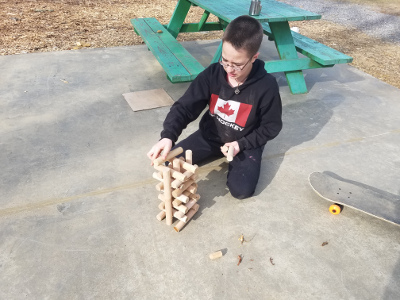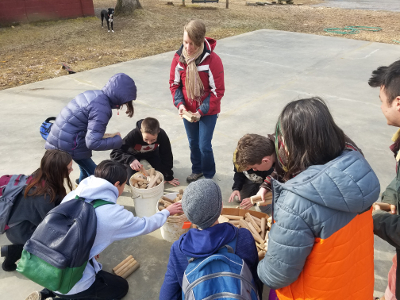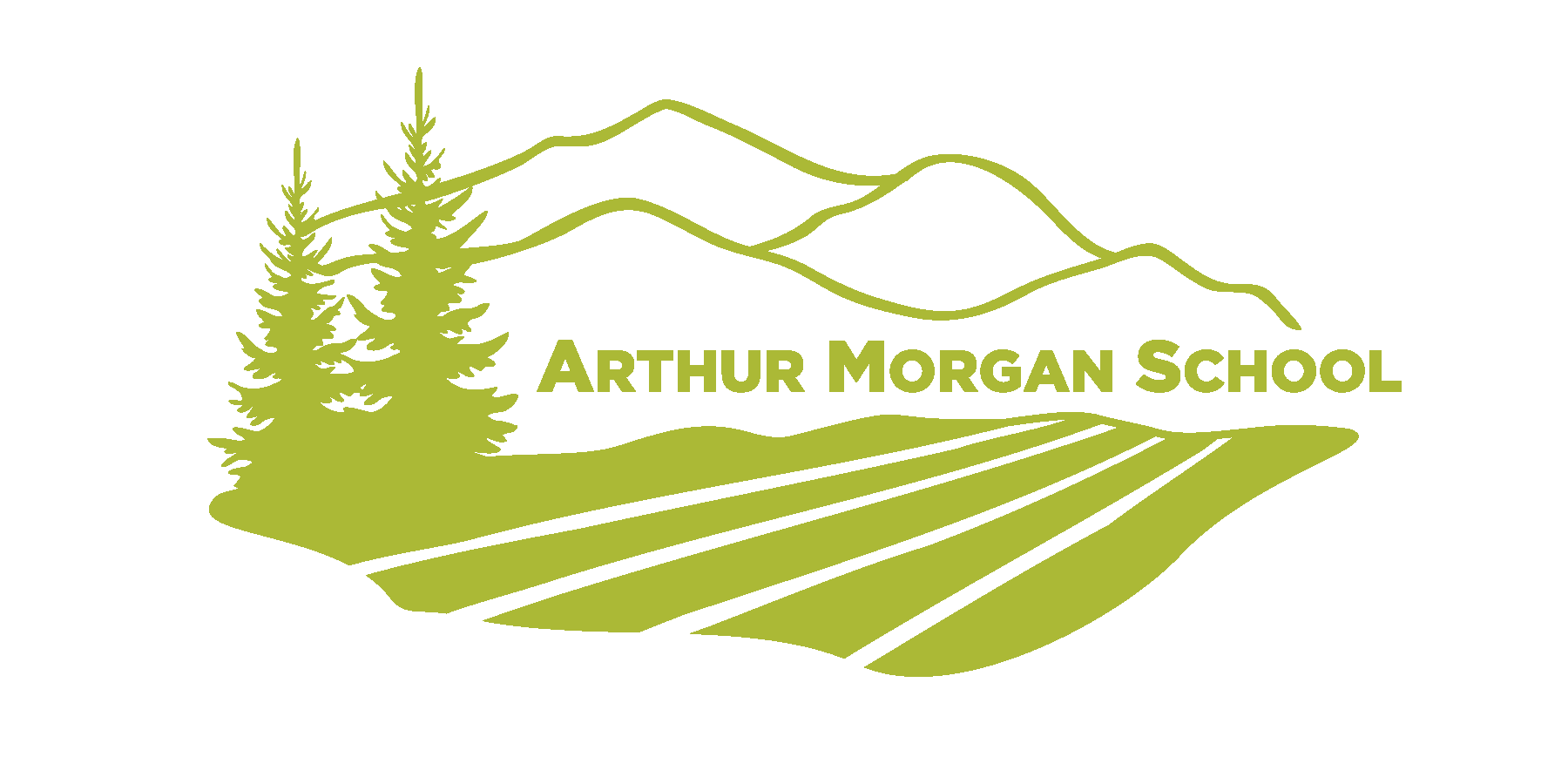Getting Hands On with Climate Change

In most situations if you start talking about the weather it means your have run out of things to say. For Arthur Morgan School’s Coastal Ecology and Climate Change field trip, however, weather is just the beginning of the conversation. Every spring, AMS sends its middle schoolers out on 18 day field trips. The trips correspond to a course the students take in the weeks prior to the trip. Then, at end of February, students pack up into a bus and hit the road to experience what they learned hands on.
On the Coastal Ecology and Climate Change field trip students are going to get an in-depth look at the link between our disappearing shorelines and the warming of our planet. For the last five weeks, they have been learning about ecosystems and the effects of global warming in a classroom. Next week, they will start seeing it in action.
Climate Change Hands On Activities
The class surveyed weather, climate, ecology and hurricanes, both in their scientific and human relevance. Through hands-on experiments and play they discovered how heat works. They looked at how the transfer of energy around the planet’s surface is instrumental in forming ecosystems. They studied global air and water currents and discussed how those currents affect various biomes in the world.

The class then looked at ecosystems. The students explored how ecosystems work and the sensitivity of their balance. Using group activities, they demonstrated the delicateness of these systems and how easily they can be destroyed. The class focused on the oceans and learned about the various forms of life throughout different oceanic zones. They gained an understanding of the significance of marine biology to rest of life on the planet.
Then, the class dug deeper into the issues of global warming and climate change. They learned about some of the environmental impacts and causes of both. The class discussed how humans are affected by climate change, looking at hurricanes in particular and the effects of last year’s powerful storms. The class concluded with discussions about effective tactics to reduce carbon emissions and the power individuals have in manifesting change.
Experiencing Climate Change Hands On
Next week, the class will embark on their 18 day field trip. The trip will be almost entirely within the boundaries of Florida. They will be visiting scientists, activists, wetlands, islands and museums (including the Phillip and Patricia Frost Museum of Science) to expose the students to what they learned about in class. They will be visiting coastal ecosystems to discuss how they have been affected by both extreme weather and rising sea levels.
In Miami they will work with a university student who used grassroots political pressure to change the city’s policies toward climate change. The trip will aid in restorative environmental projects and visit presentations of graduate students wrapping up their field studies on sea level rise. They will also be visiting long time friends of AMS, the Geiger family in Jacksonville and the Winsberg family in Boynton Beach.
Follow Our Progress
You can follow the trip’s progress on the school’s Facebook page. We will be posting student entries and pictures from their experience on the road daily. If you are interested in seeing the exciting ways our students are learning about climate change, please follow us and stay engaged.
-by Nicholas Maldonado
